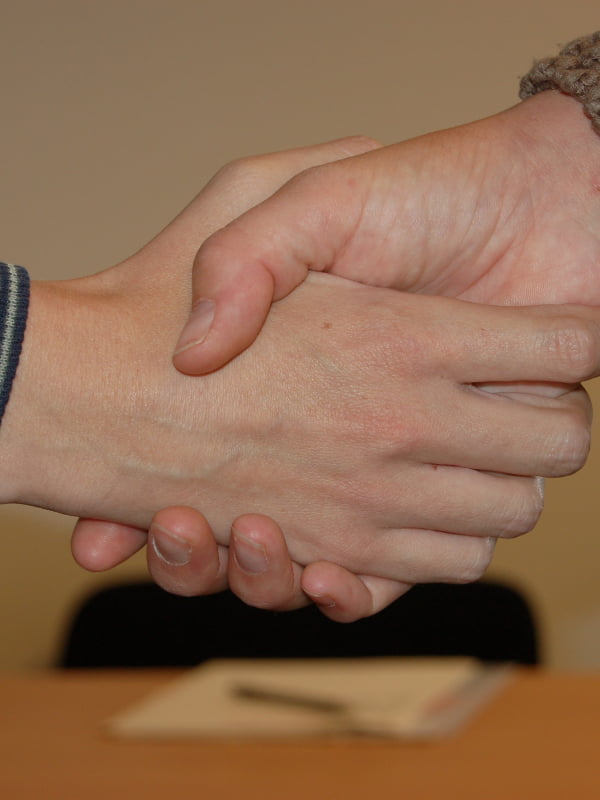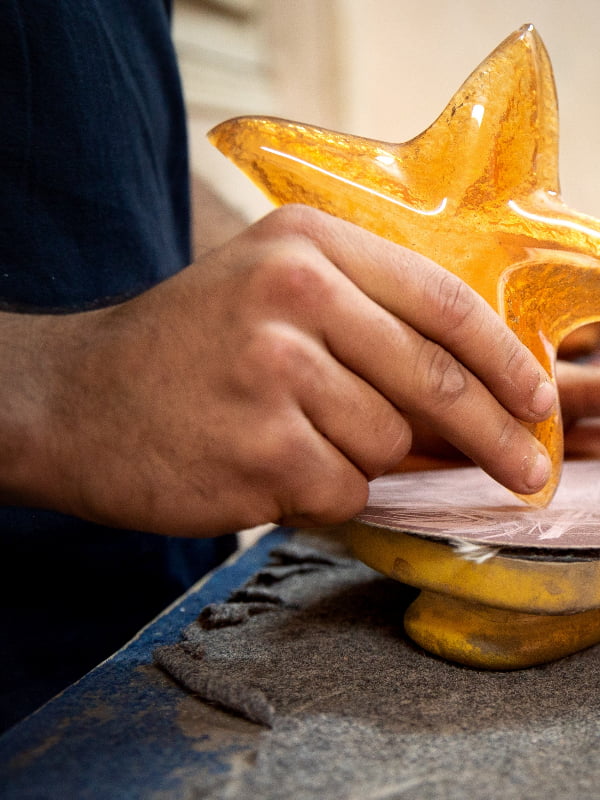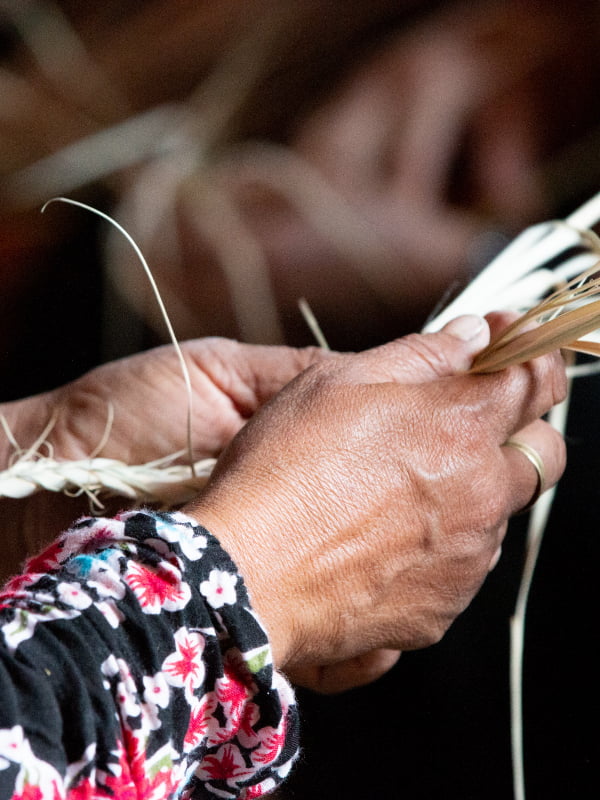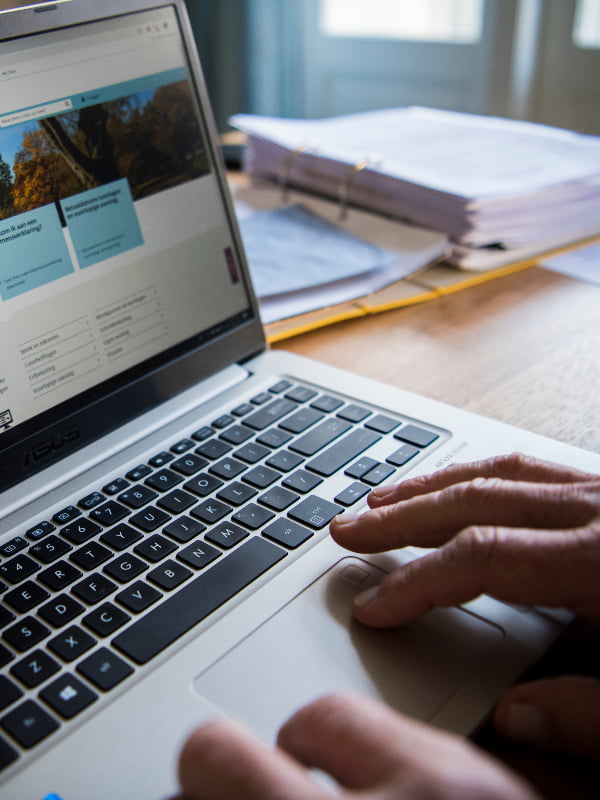Recycled plastic as prime material for sustainable transport
To produce export-quality bananas, using plastic bags to protect the bunches is standard practice in the banana industry. Yet, plastic bags are single-use items that are burnt or dumped in a landfill or along the roadside, where the wind blows them into waterways. AgroFair and its partners are meeting the challenge of ensuring the bags are recycled responsibly. With the project 'From bunch bags to corner boards - recycling banana plastic', the small recycling company ECOBAN was set up in Peru. ECOBAN collects these plastic bags to make corner boards that protect and stabilise the banana boxes on the pallets. AgroFair CEO Hans-Willem van de Waal talks about this project's challenges.
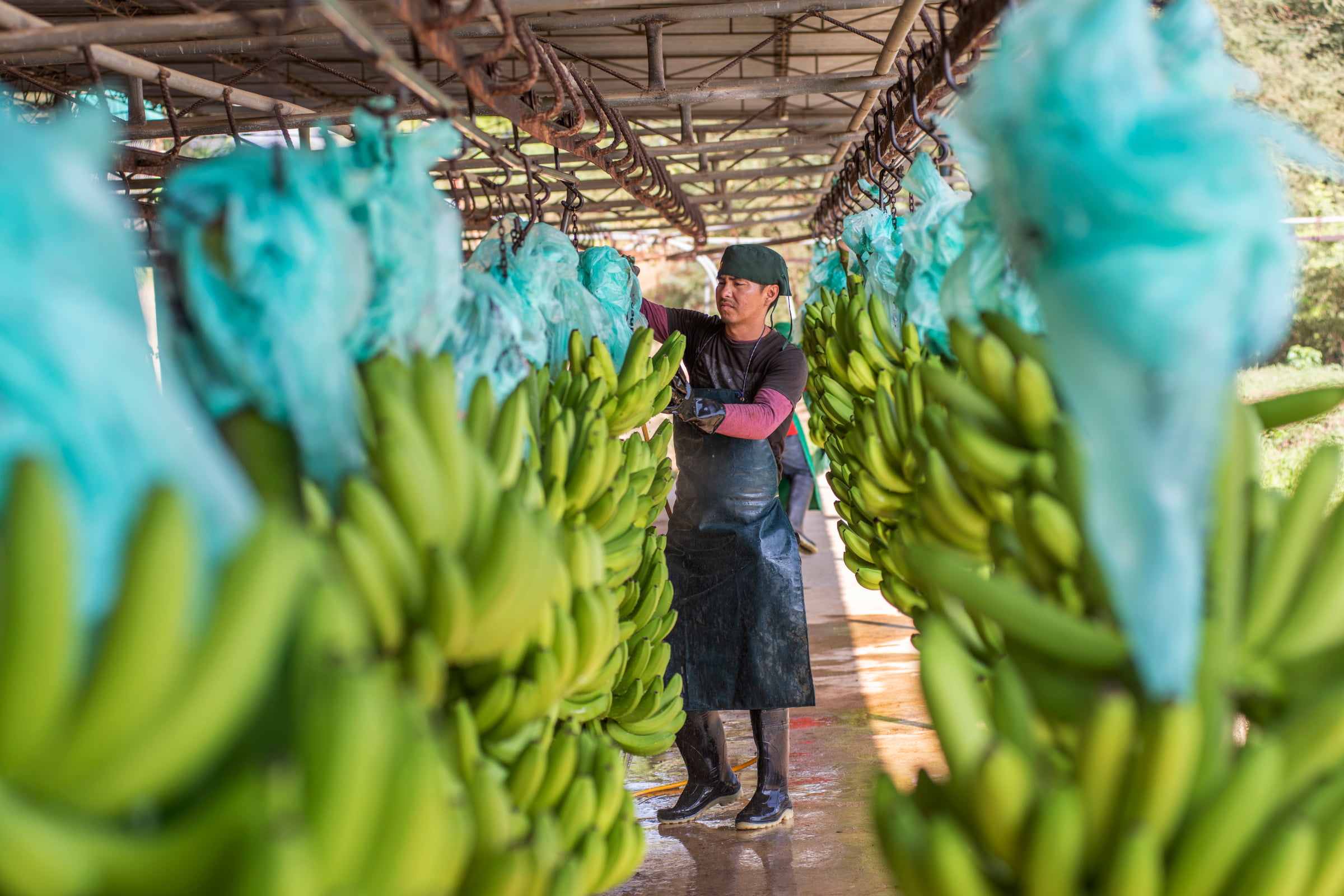
What challenges did you face, and how did you overcome them?
"ECOBAN's accounting system showed that we were not breaking even. That is common in the start-up phase. But with costs building up, we needed to run our operations more efficiently. A business plan and a series of measures offered the solution. For example, we started working at times when energy was cheaper. We also compressed the plastic bags into bales that took up half the usual space. This resulted in considerable savings in time and transport costs. These measures have increased the number of corner boards we produce each month to the point that we have almost reached break-even!"
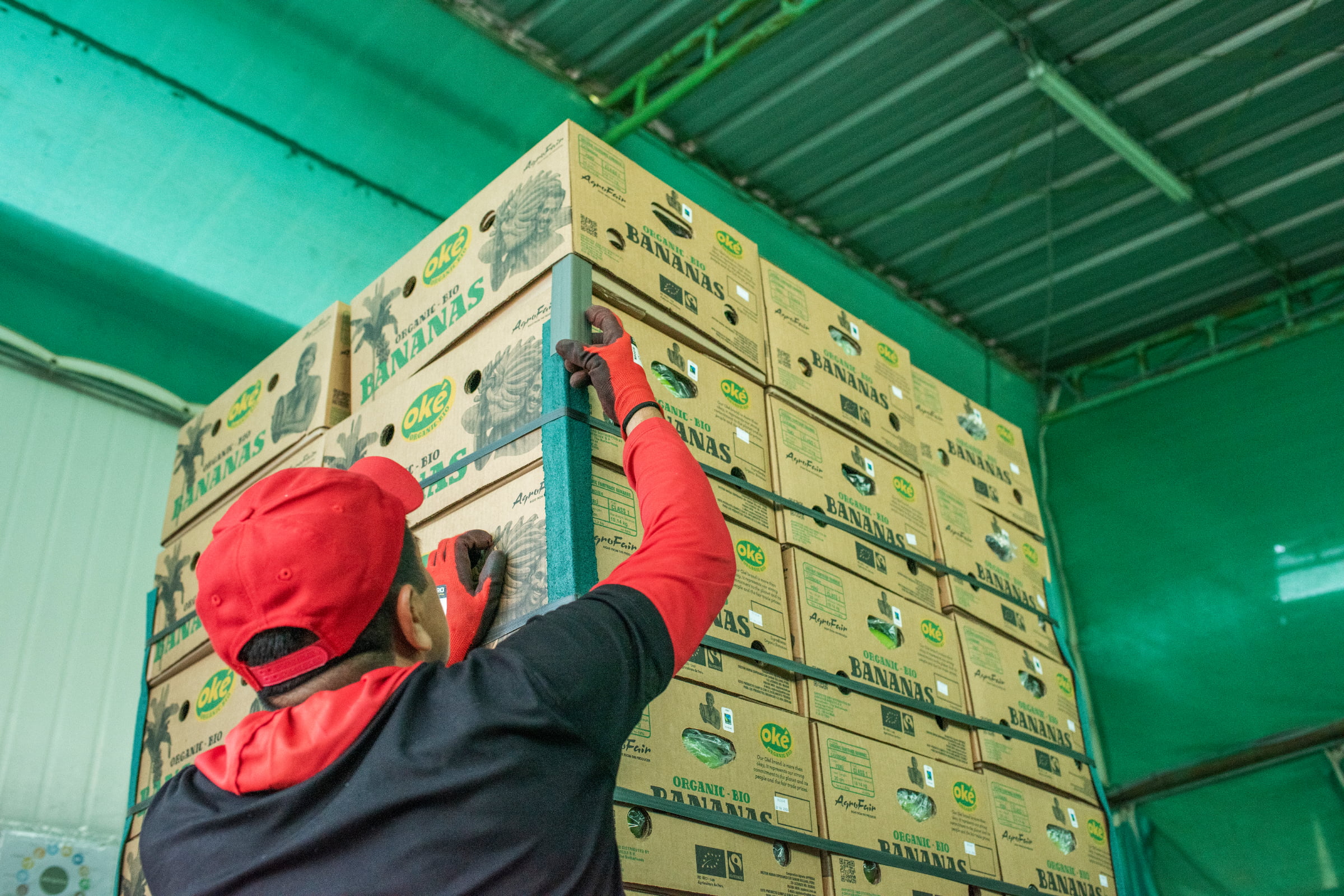
What Corporate Social Responsibility (CSR) problems has AgroFair tackled?
"Burning or dumping plastic waste is not a good example of corporate social responsibility. That is what we wanted to tackle. In 2022, 15.6 million bags were used in the export banana sector in Peru. If you put all these bags end to end, they would span 30,000 kilometres. That is almost the whole way around the world! Every year! Our ambition is to make the entire banana export sector in Peru plastic-free. By 2022, through ECOBAN, we collected and recycled 2.9 million plastic bags. In the first 6 months of 2023, we already reached 2 million. We expect to end 2023 with recycling twice the number of plastic bags we did in 2022."
"In 2022, we used 15.6 million plastic bags. If you put all these bags end to end, they would span 30,000 kilometres. That is almost the whole way around the world! Every year! Our answer to this problem is to make the banana export sector in Peru plastic-free."
Does the project have a lasting impact on the local community?
"We hope authorities and organisations in this sector will become more aware of the risks of plastic pollution. We also hope this message will reach local workers, households and communities."
How important is working in partnerships and with the Netherlands Enterprise Agency (RVO)?
"This project can only succeed as a partnership. We worked successfully with ONG Solidaridad, Tulipán Naranja, Plastic Fantastic and the University of Piura. This collaboration would also not be possible without the commitment of the Cactus supermarket group from Luxembourg.
The subsidy from RVO's Fund for Responsible Business (FVO) helped us make this project a success. Cactus supermarket group's financial contribution also played an important part in the success of the project."
What tips do you have for other entrepreneurs?
"Do not assume that things will automatically work out. Look for opportunities and possibilities yourself, and do not rely too much on local politicians. Take action and avoid unnecessary delays. Keep believing in your vision and take the time to achieve your goals. Do not give up. And finally, this tip: communicate, form alliances and convince others in your network of your vision. This will trigger other initiatives, allowing you to fund your project differently."
More information
FVO is closed, but our advisors are happy to answer questions about sustainable and responsible projects. For more information on our sustainable and responsible projects, visit our sustainable and responsible international value chains page. Or apply for the Social Sustainability Fund (SSF).
Together, we improve human rights, fight child labour and tackle environmental pollution.
- Ministry of Foreign Affairs
